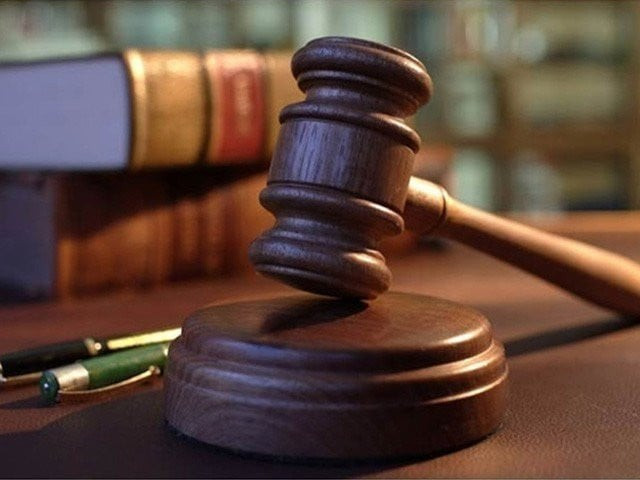SC makes staff information public
Rules that apex court no excluded from purview of Article 19A

The apex court has ordered its registrar to release information about the court staff under the Right of Access to Information (RTI) Act, 2017 to a citizen, ruling that the Supreme Court is not excluded from the purview of the Article 19A of the Constitution.
Unveiling its reserved judgment on Monday, the court agreed with the attorney general for Pakistan (AGP) that the RTI Act, 2017, did not apply to the Supreme Court but stated that “information of ‘public importance’ can be sought thereunder [Article 19A]”.
The court announced the ruling on a petition, challenging a decision of the Islamabad High Court (IHC).
The IHC had accepted the SC registrar's writ petition against an order of the Pakistan Information Commission's (PIC) that on July 12, 2021 directed the registrar to share with the appellant information about the SC staff.
"The question of whether the petitioner can seek information under Article 19A of the Constitution still needs consideration. The Supreme Court is not excluded from the purview of Article 19A of the Constitution, and information of ‘public importance’ can be sought thereunder,” said the 10-page judgment, authored by Chief Justice of Pakistan Qazi Faez Isa.
“It now needs consideration as to what constitutes ‘public importance’. The phrase ‘public importance’ is mentioned in a number of places in the Constitution but it does not define it. The phrase, however, has been interpreted by this court," it added.
The court, however, stressed that the appeal preferred by the petitioner before the PIC was not maintainable and to such an extent, a single-member bench of the IHC had correctly determined the matter.
The order said that Article 19A envisages the placement of reasonable restrictions on the provision of information, but refusing to provide the information is to be justified by the person, authority or institution withholding it.
“In the present case, there is no reason why the information sought by the petitioner should not be provided, nor can the provision of such information be categorised as being contrary to the public interest. Consequently, the information sought by the petitioner should have been provided to him.”
The court said what previously might have been on a need-to-know basis, the Article 19A of the Constitution had transformed it into a right-to-know. "The burden has shifted from those seeking information to those who want to conceal it,” the order continued.
“Access to information is no longer a discretion granted through occasional benevolence, but is now a fundamental right available with every Pakistani which right may be invoked under Article 19A of the Constitution", it added.
The court noted that the importance of the people’s right to information was articulated 200 years ago, adding that access to information secured the well-being of the people, which the nation aspired to as stated in the principles of policy set out in the Constitution.
Read Each institution must hold itself accountable: CJP
The order further noted that the Article 19A subjected the provision of information to regulation and reasonable restrictions imposed by the law. However, it added, there was no law about the Supreme Court in this regard, while the Supreme Court had itself made no such regulations.
“Needless to state that if a law is enacted and/or regulations made, requests for information would be attended to in accordance therewith and in accordance with Article 19A, the order.
Justice Athar Minallah wrote an additional note. He said that a plain reading of the Right of Access to Information Act, 2017 showed prima facie that the Supreme Court had not been expressly excluded from the definition of “public bodies”.
The definition of the expression “public body” in sections 2(i) and 2(h) of the Sindh Transparency and Right to Information Act, 2019, and the Punjab Transparency and Right to Information Act 2013, included the high courts as amenable to the right to access law.
“It appears that the Supreme Court has not been expressly excluded from the purview of the exercise of the right of a citizen under Article 19A. As a deference to the principle of trichotomy, the adoption of the principles and rules relating to enforcement of the fundamental right of access to information seems to have been left to the Supreme Court,” Justice Minallah added.
“Any interpretation of the Act of 2017, having the effect of giving immunity to the Supreme Court from the exercise of the right of a citizen to have access to information would amount to abridging and taking away a constitutionally guaranteed right,” the judge wrote.
Read More Deputationists can be recalled anytime: SC
“It is also beyond imagination to expect that the highest forum, entrusted with the onerous duty to protect the fundamental rights, would be involved in its abridgment or outright refusal to give effect to or enforce such rights,” he said.
Justice Athar Minallah stressed that public confidence would erode and the independence of judiciary would be undermined if the citizens perceive that the custodian of fundamental rights was involved in its abridgment. He added that the Supreme Court’s strength was solely based on public confidence.
“No citizen should walk away from the Supreme Court perceiving that the refusal to entertain a request for access to information as concealment or suppression of public information," he said, adding the court enforced the fundamental rights by ensuring that actions and decisions of others were transparent.
“The right of access to information is a bulwark against corruption and corrupt practices. It enables the citizen to know how they are being served and how the resources that belong to them are being utilized and spent. It empowers the citizens and promotes democratic values and participatory governance.”
Justice Minallah noted that the internal regulations, information relating to human resource, privileges and perks enjoyed by the judges and the employees, the budget allocated to the Supreme Court and its expenses were some of the areas of public importance and thus of interest to the citizens.
“The Supreme Court is presumed to be a model for others to follow regarding financial discipline and implementation of enforced laws and policies of transparency and openness.
“It is also presumed that the Supreme Court would be enforcing the principles that it enunciates for others to follow more rigorously in its own administrative affairs.”



















COMMENTS
Comments are moderated and generally will be posted if they are on-topic and not abusive.
For more information, please see our Comments FAQ